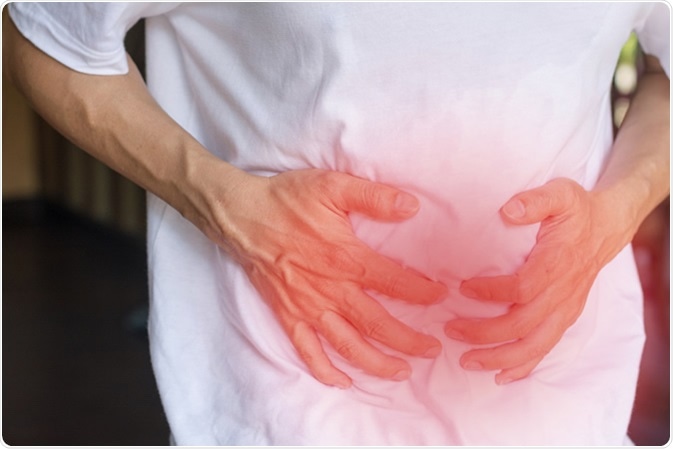For The Latest Medical News, Health News, Research News, COVID-19 News, Pharma News, Glaucoma News, Diabetes News, Herb News, Phytochemical News, Thailand Cannabis News, Cancer News, Doctor News, Thailand Hospital News, Oral Cancer News, Thailand Doctors
Irritable bowel syndrome (IBS) is a somewhat common diagnosis, prevalent in 8-20 percent of the population in the US. It is a chronic disorder which has symptoms of abdominal distension and pain, diarrhea, bloating and flatulence, in one or the other combination.

The reason for the occurrence of IBS is not yet well understood, so treatment has been relatively unsuccessful for many patients. However, two of every three patients with IBS have food-associated exacerbations. These are accounted for by several pathogenetic mechanisms such as intestinal hypersensitivity, altered motility of the gut muscle, and malabsorption such as lactose intolerance.
However, abnormal fermentation of oligosaccharides and other osmotically active molecules in the gut is also an important contributory factor, and is the basis of treatment with the low FODMAP diet.
In the normal gut the stomach and the first part of the small intestine have few bacteria, in contrast to the large bowel which has abundant bacterial growth, and the terminal ileum which is intermediate in bacterial concentration.
When colonic bacteria grow into the proximal part of the small intestine, small intestinal bacterial overgrowth is said to occur. This is characteristic of patients with IBS, because of low gastric acidity and decreased motility of the gut. IBS symptoms are primarily due to this phenomenon.
Immunoglobulin E-mediated food allergy is rare and occurs mostly in infants or children. Most of them are due to eight foods - namely eggs, milk, peanuts, nuts, wheat, soy, fish and shellfish. It is not yet established that IBS is due to such allergies.
Such symptoms are usually addressed by elimination diets, followed for 14 or more days, with gradual reintroduction of foods one by one to determine the association of allergies. These diets are most useful in IBS patients with diarrhea as a predominant symptom.
Low FODMAP diets are a current form of dietary therapy for IBS which is based on the results of several studies demonstrating a substantial benefit for the majority of patients put on such a diet. They succeeded the elimination diets which were not proven to be of benefit, and resulted in dietary deficiencies, as well as unrealistically restricted diets. Medications have not been of much use in providing even symptomatic relief in IBS either.
FODMAP refers to fermentable oligosaccharides, disaccharides, monosaccharides and polyols, all of which are subject to rapid colonic fermentation. This process produces abundant gas and fluid within the gut, causing the typical functional symptoms of IBS.
Foods to be cut out typically include lactose-containing foods (dairy), those which have more fructose than glucose (most cruciferous vegetables, apples, high-fructose corn syrup, honey and agave syrup), fructans (wheat and rye), galacto-oligosaccharides (as in legumes), and polyols (artificial sweeteners, and fruits of the apple family). Fructose or fructans evoke greater symptomatology in such patients, which becomes worse as the amount of such foods increases.
Avoiding aforementioned oligosaccharides, disaccharides, monosaccharides and polyols overcomes several mechanisms of malabsorption including:
Patients with IBS and symptoms triggered by food intake should be put on a low FODMAP diet for evaluation, preferably with the help of a dietitian. This will avoid deficiencies, and help to formulate a tasty and varied diet by using required substitutions according to the patient’s individual tastes and dislikes.
In most cases, the low FODMAP diet is carefully followed for 6-8 weeks, but if symptom control is good, food challenges may be started by reintroducing some foods, one at a time, in very small amounts and watching for symptoms. A food journal will usually help to keep track of this process.